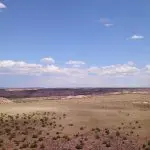[Originally published as Engaging with JW’s about the deity of Jesus, pt. 1]
Bullet points on Jehovah’s Witness beliefs about God, Jesus, and the Holy Spirit:
- JWs believe that the Watchtower (i.e. the “faithful and discreet slave”) represents God’s voice and direction on earth. They only interpret Scripture through the Watchtower lenses. The Watchtower is the governing body of all Jehovah’s Witnesses.
- Jesus is a created being. He was originally created as Michael the archangel, then became Jesus when he came to earth. They would say Jesus is “god-like,” “a god,” or “a mighty god” but not the “Almighty God Jehovah.” Jehovah created Jesus, and then he created “all other things” during creation week.
- Jesus did not resurrect physically but only spiritually.
- The Holy Spirit is an “active force” of God but not God himself or a person. They believe in a unitary God, not the Trinity.
- Jesus must not be given worship, but only honor or “obeisance.”
- The JW’s have produced their own translation of the Bible called the New World Translation (NWT). All biblical scholars today recognize it as a gross distortion of the original Greek.
- They believe that Jehovah is the only name by which God must be called. Every time our Bible has LORD in the OT (all caps represent YHWH) or Lord in the New Testament (kurious, in the Greek), they insert the name Jehovah in the NWT.
It is important that we place our faith in the true Jesus. A false Jesus cannot save (see 2 Corinthians 11:4) and will result in a false gospel (see Galatians 1).
How to Get Started
Below is a selection of Scriptures and questions that you can bring up in conversation with a Jehovah’s Witness. Be sure to be respectful and ask them a lot of questions to lead the conversation forward. You want to help them have space to rethink their views on each of these Scriptures. This will not happen if they feel like you are trying to pin them down or are aggressive.
You want to simply leave a rock in their shoe.
Focus on just a Scripture passage or two, ask them questions about it, and then give them time to chew on it. They may try to jump around to multiple Scriptures, but it is your job to lead the conversations and ask them if you can just focus on one Scripture at a time.
Since JW’s only believe that the NWT is authoritative, it is possible to use it to demonstrate the deity of Jesus. I would pull out your own copy of the Bible to compare the NWT to your version. While the NWT changed the original reading of commonly known explicit passages that point to the deity of Jesus (i.e. John 1:1, Colossians 1:16, and Jesus being worshiped in Hebrews 1), they didn’t bother with many of the more oblique passages. The following verses are some of the strongest combinations of Old and New Testament verses that support the deity of Jesus.
The goal here is to help them see that Jesus is Jehovah. Jesus is one with God the Father in substance, yet distinct as the second person of the Trinity. JWs need to see and believe that Jesus is the I AM, Jehovah, of the Old and New Testament, and unless they believe that, they will die in their sins (John 8:24).
Passage Set #1: John 12:41 and Isaiah 6
In the year that King Uzziah died, I saw the Lord sitting on a throne, high and lifted up, and the train of his robe filled the temple. (Isaiah 6:1, NKJV).
Question: Who did Isaiah see in the temple?
Answer: The LORD, Jehovah
But although he has done so many signs before them, they did not believe in Him, that the word of Isaiah the prophet might be fulfilled….
He has blinded their eyes and hardened their hearts, lest they should see with their eyes, lest they should understand with their hearts and turn, so that I should heal them. These things Isaiah said when he saw His Glory and spoke of Him.” (John 12:37,40-41, NKJV)
Verse 41 in the NWT: “Isaiah said these things because he saw his glory, and he spoke about him.”
Question: Who is John talking about in chapter 12?
Answer: Jesus
Question: In John 12, whose glory did he say that Isaiah saw?
Answer: Jesus
Question: Again, I want to ask, whose glory did Isaiah see in Isaiah 6?
Answer: Jehovah
Question: Therefore, whose glory did Isaiah actually see, according to both John 12 and Isaiah?
Passage Set #2: Hebrews 1 with Psalm 45:6 and 102:25–27
Hear my prayer, O Lord, And let my cry come to You.
Of old you laid the foundation of the earth, and the heavens are the work of your hands. They will perish, but you will endure; yes, they will all grow old like a garment; like a cloak you will change them, and they will be changed but you are the same, and your years will have no end. (Psalm 102:1,25–27 NKJV).
“O Jehovah, do hear my prayer…long ago you laid the foundations of the earth itself, and the heavens are the work of your hands. They themselves will perish, but you yourself will keep standing, and just like a garment they will all of them wear out Just like clothing you will replace them, and they will finish their turn. But you are the same, and your own years will not be completed.” Verses 1,25 NWT).
Question: Who is the subject of this sentence?
Answer: Jehovah
Your throne, O God, is forever and ever; a scepter of righteousness is the scepter of your kingdom. (Psalm 45:6 NKJV).
Question: Whose throne is forever — Jehovah’s or someone else?
But when he again brings the firstborn into the world, He says: Let all the angels of God worship him. And of the angels He says: “Who makes his angels spirit and his ministers a flame of fire. But to the Son He says: Your throne, O God, is forever and ever; a scepter of righteousness is the scepter of your kingdom. You have loved righteousness and hated lawlessness; therefore God, your God, has anointed you with the oil of gladness more than your companions. And: You LORD, in the beginning, laid the foundation of the earth, and the heavens are the work of your hands, they will perish, but you remain; and they will all grow old like a garment: like a cloak you will fold them up, and they will be changed. But you are the same, and your years will not fail.” (Hebrews 1:6–12 NKJV).
Question: Why do you think that the author of Hebrew quoted Psalms 102 and 45? What are the implications of applying OT passages directed towards YHWHW towards Jesus? Why do you think that angels worship Jesus if he is not God? If Jesus is not God, then the angels are technically committing idolatry.







